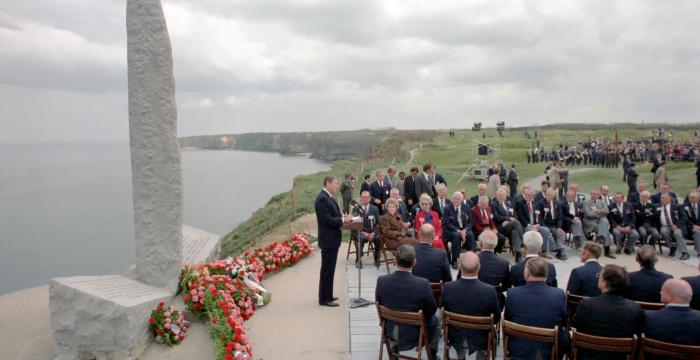President Biden’s Missed Strategic Opportunity: The 80th Anniversary of D-Day
In the early 1990s, I worked on a study of the new Slavic states, namely Belarus and Ukraine, and their impact on the European order. We argued that these states really did not fit into the Western or the Russian orders and constituted a future flash point for European conflict.
There was much uncertainty with regard to how either the United States or Western Europe should deal with them, and the larger question of the fate of the “new” Eastern Europe was more pressing. The West essentially fell back to their default structures, the European Union and NATO, as their answer to how to deal with the awkward states like Hungry and Romania, but we are still facing an unsettled European order, one which is hardly “whole and free” which was the pitch word from Washington.
But that meant, one had still to deal with the Russians, who throughout modern European history have challenged or troubled a settled European order.
President Putin is the latest Russian leader to drive the challenge. His seizure of Crimea in 2014 which followed earlier actions in Georgia and elsewhere set the stage for his more recent invasion of Ukraine. This war is a deadly event for both countries and creates much uncertainty about the impact of both on the future European order, and the West is hardly unified behind the policy of the Ukrainian leader with regard to the objective of fighting the war until he regains all of Ukrainian territory including Crimea.
The problem is that this objective is leading to the evisceration of his own country. The Ukrainians have fought valiantly but it is difficult to help Ukraine by simply giving arms until the last Ukrainian stands tall against the Russians.
There is little alternative to dealing with Russia and supporting Ukraine and negotiating a ceasefire. After which, the West faces the daunting task of figuring out what policies they will support for the future of Ukraine and Russia and how to reinforce the independence of Ukraine in difficult strategic conditions.
But what President Biden did at Normandy makes addressing the realities of the situation virtually impossible. Putin has shaped a narrative about Ukraine which stretches credulity. He has argued for the reassertion of the Soviet empire on the grounds that the United States seeks to dominate Russia by expanding NATO ever eastward and undercutting fundamental Russian interests. And he has argued for a number of years that the West is morally corrupt to the extent that the West no longer can even distinguish men from women and other such historical aberrations.
And he has wrapped these arguments around a traditional Russian imperialist effort. This effort must be dealt with as many of the states who know the Russians best such as Poland, the Baltic States and Finland are clearly doing.
So what did Biden do at Normandy?
Ignore completely the central role the Russian people played in the defeat of Nazism. FDR dealt with a far worse dictator than Putin and embraced the Russian alliance in the defeat of Nazism. D-Day ceremonies should remind folks of who fought together to defeat the Nazis.
Having the Ukrainian president greet American veterans provides a propaganda victory for Putin in selling his narrative to the Russian people.
Rather than campaigning abroad through the D-Day prism, Biden could have met with Putin and forcefully argued for a ceasefire but with a clear commitment to supporting Ukrainian independence going forward. Something Putin has to accept going forward.
In contrast to President Reagan’s 40th Anniversary speech which held out the olive branch to a Soviet leadership far worse than Putin, President Biden simply throw gasoline on the fire. And as a an alternative fuel guy, this is indeed tragic and ironic.
And by the way that Reagan speech was given in the wake of Able Archer, the closest moment we have come UNTIL now to nuclear war.
As Ronald Reagan said and President Biden did not:
“It’s fitting to remember here the great losses also suffered by the Russian people during World War II: 20 million perished, a terrible price that testifies to all the world the necessity of ending war. I tell you from my heart that we in the United States do not want war. We want to wipe from the face of the Earth the terrible weapons that man now has in his hands. And I tell you, we are ready to seize that beachhead. We look for some sign from the Soviet Union that they are willing to move forward, that they share our desire and love for peace, and that they will give up the ways of conquest. There must be a changing there that will allow us to turn our hope into action.”
Credit Photo: Ronald Reagan Presidential Library

